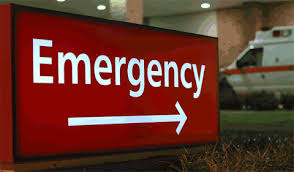The Latest:
Last month something extraordinary happened at teaching hospitals around the country: Young interns worked for 16 hours straight — and then they went home to sleep. After decades of debate and over the opposition of nearly every major medical organization and 79 percent of residency-program directors, new rules went into effect that abolished 30-hour overnight shifts for first-year residents. Sanity, it seemed to people who had long been fighting for a change, had finally won out.
Earlier Reforms:
The Latest:
Last month something extraordinary happened at teaching hospitals around the country: Young interns worked for 16 hours straight — and then they went home to sleep. After decades of debate and over the opposition of nearly every major medical organization and 79 percent of residency-program directors, new rules went into effect that abolished 30-hour overnight shifts for first-year residents. Sanity, it seemed to people who had long been fighting for a change, had finally won out.
Earlier Reforms:
In 2003, the accreditation council imposed the 80-hour limit on all U.S. training programs, prohibited trainees from direct patient care after 24 hours of continuous duty and mandated at least one day off per week.
The Result:
A massive national study of 14 million veterans and Medicare patients, published in 2009, showed no major improvement in safety after the 2003 reforms.
Possible Reasons:
About 98,000 people die every year from medical errors. Some of those mistakes are made by doctors whose judgment has been scrambled by lack of sleep. But fixating on work hours has meant overlooking other issues, like lack of supervision or the failure to use more reliable computerized records. Worse still, the reforms may have created new, unexpected sources of mistakes. Shorter shifts mean doctors have less continuity with their patients. If one doctor leaves, another must take over. Work-hour reductions lead to more handoffs of patients, and the number of these handoffs is one of the strongest risk factors for error. As a result, many hospitalized patients are at the mercy of a real-life game of telephone, where a message is passed from doctor to doctor — and frequently garbled in the process.
Full New York Times article here.








